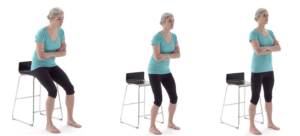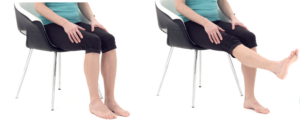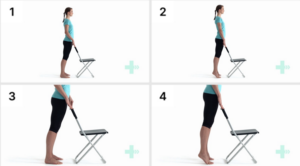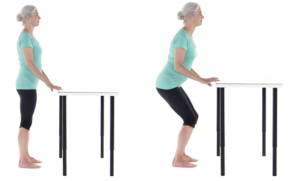Introduction
The Post-Op Lower Limb Class aims to support patients after non-complex lower limb surgeries with their rehabilitation. It aims to help with recovery post-operatively to get your joint movement, muscle power, flexibility and balance back. We want to support you to achieve your goals within the expected timeframe following surgery. You have been referred to our service by your consultant who has recommended post-operative rehabilitation as part of your recovery.
What to expect
This is a physical, progressive exercise rehabilitation group. It will consist of up to 8 people, from varying non-complex lower limb surgeries. You will be assessed in your first class by a senior physiotherapist who will follow a post-operative checklist and discuss your protocol as advised by your consultant. You will be monitored and guided through the exercises and with time you will become familiar and more confident. We would like you to attend 4 sessions spread out over 8 weeks and it is important to practice these exercises at home in between sessions and once your treatment has finished.
What will I need?
- Wear loose fitting clothing that is comfortable to move in
- Wear supportive footwear such as trainers
- You may wish to bring a drink
Read our FAQs for more information about our classes and what to expect.
Self-help exercises
If you have been given a post-operative protocol from the consultant or inpatient physiotherapist, please complete the included exercises daily as described. It is important this is completed each day to make progress with your recovery.
We have included low-level exercises below to assist with your recovery whilst waiting for your class to start and in between classes. Complete them as your joint allows, it may feel tiring but should not significantly exacerbate your pain.
Exercise 1 - Sit to stand

Sit upright on a stool so that your hips are higher than your knees.
Your legs should be hip width apart.
Step your feet backwards, so they are directly under your knees.
Fold your arms so that they are not used to push yourself up.
Lean your body forwards, and push through your legs to stand up straight.
Ensure you fully straighten your hips once you are standing.
Exercise 2 - Knee extension

Sit on a chair.
Stretch one leg out and keep it in that position for the required duration.
Return your leg to the starting position and then repeat with your other leg.
Exercise 3 - Heel raises

Hold on to a solid object with your legs hips width apart.
Keeping your knees straight, rise up on to your toes, and control the movement as you lower back down.
Exercise 4 - Mini squat

Stand up straight facing a wall or supporting surface.
Your feet should be hips width apart.
Keeping your gaze directly ahead, hold on and bend your knees a little.
Ensure your knees travel directly forwards over your toes.
Do not allow them to turn inwards.
Push through the heels of your feet and tighten your buttock muscles to return to the upright position.
Ensure your gaze remains directly ahead and your back straight at all times.
Continue this movement.
Physical activity reduces the chances of major illness
The importance of being active
NHS guidleines recommend the following:
- 150mins moderate intensity exercise a week
- 30mins x 5 = Weekly recommended activity
- Moderate intensity = any exercise that elevates the heart/ breathing rate to a point where you can still hold a conversation 75mins of intense exercise a week
- 15mins x 5 = Weekly recommended activity
- Intense exercise = any exercise that elevates heart rate
Physical benefits include
- Energy levels increased
- Increased physical strength
- Completing longer walks
- Grants you some more ability to do more things that you may enjoy Decreases chance of developing OA by 83%
Mental benefits include
- Stimulates Release of dopamine and serotonin
- Improving mood
- Reduces Stress
- Improves sleep – Serotonin has been shown to be assistive with sleep regulation
- Better digestion – Lower Serotonin presence in the gut is found to correlate with constipation
- Health is a state of complete physical, mental and social well-being and not merely the absence of disease or infirmity”. WHO
Vita is an award-winning, CQC registered healthcare provider











